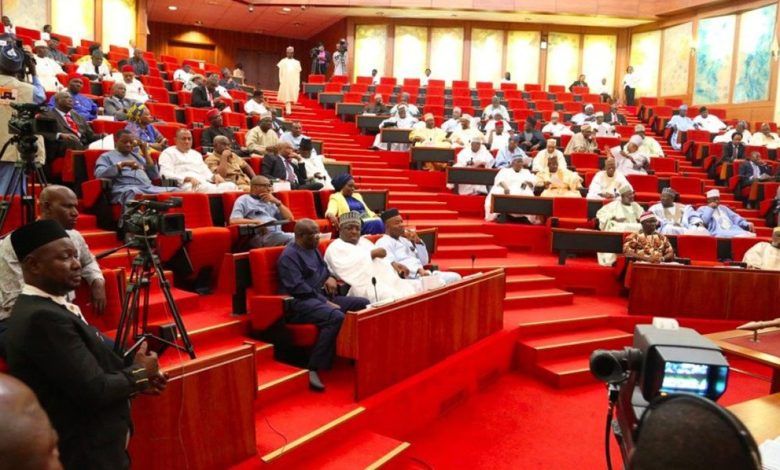
The Senate of Nigeria recently passed the Tax Reform Bills for second reading, marking a critical step towards overhauling the country’s tax system.
These bills, which were initially proposed by the Federal Executive Council, aim to introduce a series of changes designed to improve tax collection, simplify the tax process, and promote business growth.
The reform package includes significant proposals that focus on revising the distribution of Value-Added Tax (VAT), offering tax exemptions for small businesses and low-income earners, reducing corporate tax rates, and implementing VAT exemptions on essential commodities.
One of the most notable proposals in the reform package is the adjustment of VAT revenue distribution. Under the current system, the Nigerian Government receives a majority share of VAT collections. The proposed changes suggest increasing the share allocated to state governments from 15% to 55%, while reducing the federal government’s share to just 10%.
This move is expected to empower states by increasing their fiscal autonomy, enabling them to fund critical projects and better meet the needs of their populations. Interestingly, the proposal also ensures that local governments will not be affected by these changes, maintaining their share of VAT revenue.
In addition to changes in VAT distribution, the bills propose a zero VAT rate on essential commodities such as food, medical services, pharmaceuticals, and electricity. By removing VAT from these basic items, the government aims to make them more affordable and accessible to Nigerian households, particularly those from lower-income groups. This is in line with broader efforts to cushion the economic effects of existing policies like the removal of fuel subsidies, which has had a significant impact on household budgets.
Another important aspect of the proposed reforms is the reduction in company income tax, which would be cut from 30% to 25% for a period of at least two years. This tax relief is designed to ease the burden on businesses, especially small and medium-sized enterprises, and encourage more investment in the Nigerian economy.
The reform also includes provisions for tax exemptions for small businesses with annual turnovers of N50 million or less, and for individuals earning at or below the minimum wage. These changes are part of a broader strategy to promote entrepreneurship, job creation, and economic inclusivity.
Furthermore, the bills seek to streamline the tax system by consolidating multiple taxes into a single development levy. The current system includes various taxes such as the education tax and the NASENI tax. These would be merged into a single 2% development levy, which, by 2030, would contribute to the funding of the newly established student loans scheme. This initiative not only simplifies the tax structure but also aims to support the education sector by providing financial assistance to students.
Despite the widespread support for the bills, there was some debate during the Senate session, particularly from Senator Ali Ndume, who raised concerns about the timing of the reforms and the issue of revenue derivation. Ndume argued that the proposals, particularly those related to VAT and derivation, could only be fully effective if the 1999 Constitution was amended to accommodate the changes. He suggested that the bills be withdrawn for further consultations with governors, the National Economic Council (NEC), and traditional rulers before being reintroduced with their full support. In contrast, other senators, such as Senate Chief Whip Mohammed Monguno and Senator Seriake Dickson, strongly disagreed with Ndume’s position, arguing that the reforms should continue through the legislative process. They emphasized that a public hearing would allow stakeholders to raise their concerns, ensuring that the final bill would reflect a broad consensus.
The debate also touched on the issue of tax derivation, especially in oil-producing states. Senator Dickson, drawing on his experience as a former governor, highlighted the need for taxes related to oil workers and other resources in these regions to be properly accounted for and paid to the states where the activities take place. This would help address long-standing concerns about the equitable distribution of tax revenue, particularly from the oil sector, which has historically seen benefits accrue to states far from the source of extraction.
Following the debates, the Senate President, Senator Godswill Akpabio, referred the bills to the Senate Committee on Finance for further review. The committee has been tasked with inviting relevant stakeholders, including state governors and traditional rulers, to a public hearing to address any remaining issues. The committee is expected to report back to the Senate within six weeks, at which point the final versions of the bills will be considered for passage.
The proposed tax reforms are seen as a bold attempt to improve the country’s fiscal system, promote fairness in tax distribution, and support businesses and citizens alike. While there are concerns about the timing and the constitutional amendments required, the reform package represents a significant step towards a more efficient and equitable tax system in Nigeria. With continued consultation and refinement, these reforms could help reshape the nation’s economic landscape, ensuring that tax revenue is more effectively utilized to support growth, development, and social welfare across the country.





